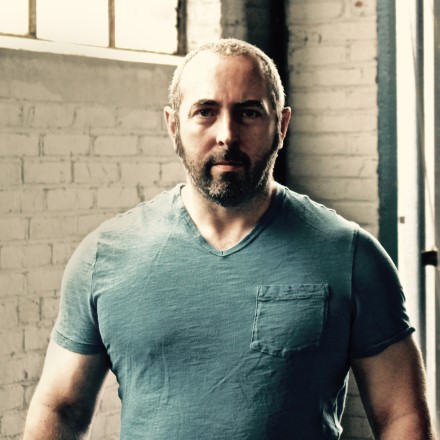When I was a kid, there was a bully at my school. There were actually quite a few, but this kid was the loner, who all the other bullies looked up to, feared, and respected. Unlike most of the other bullies, he didn’t seem to have an agenda or any specific kids he picked on. He targeted anybody and everybody. Nobody was safe from Jamie - I forget his last name; something that isn’t that relevant when you’re 6 or 7 years old. I do remember a group of us, meeting to discuss tactics, strategies, and techniques for taking him down, and sending a message that the bullying would have to stop. We decided on a really simple plan: somebody would punch him in the stomach, and when he bent over, knee him in the face, and kick him in the groin. It was a great plan, if it worked. If it didn’t work, it was a terrible plan, and that’s why nobody volunteered to be the one who implemented it. This article is about the failure of techniques, tactics and strategies, and what to do when our plans don’t work.
Firstly, there might have been ways we could have gotten our plan to deal with Jamie to work, or at least improve our chances of success. If we had been able to adopt the right mindset, and develop the necessary skills and attributes, such as learning to punch hard and fast, our chances of success would have gone up. To put it another way, without the correct mindset and the necessary skills/attributes, failure would be virtually guaranteed. However, it is worth noting that even with these things present, nothing would be certain, as there are always variables at play which can cause a strategy or technique to fail, regardless of whether it is sound or not.
All techniques can fail, all techniques have inherent problems and issues with them. Many reality-based self-defense instructors deny this truth to their students, and present techniques as perfect solutions to problems, not being subject to any issues and potential problems. I have heard instructors say, concerning knife attacks, that you block and keep punching until you shut your aggressor down, etc. It’s a great strategy if it works i.e. if your punches are effective. If your punches aren’t effective, it’s a terrible strategy. Mindset, and the necessary skills/attributes, will improve your success rate, but they won’t guarantee a particular outcome. Your attacker may be pain resistant/tolerant, due to drugs, alcohol, or adrenaline, or they may have a similar mindset, and set of skills/attributes to yourself e.g. they know how to ride your punches, and know how to cover up and continue attacking, etc. The definition of madness is doing the same thing over and over again, expecting a different result. Investing more effort into something that isn’t working is not an acceptable solution to a real-world self-defense problem, we must be ready and able to move on, and attempt different things; this is why we need a broad base of solutions – this doesn’t mean that we don’t practice in depth, rather that we don’t put all our eggs in one basket.
Different techniques tend to solve one or two parts of a problem well, and neglect or attempt to mitigate others, and it is when these come in to play that we may need to be flexible and change our approach and/or do things in a different order. We may need to control and then strike, rather than strike and then control, or vice versa. We must also recognize that one approach, can result in multiple outcomes. For example, if you punch somebody they may not move back, but instead cover up, or immediately come back with a punch of their own, etc. Attackers, don’t necessarily try to retain their weapons in the way our techniques anticipate they will; a good technique will take retention, and the most common modes of retention into account (or they should), but there will be times when an attacker responds in a manner that the technique isn’t primarily suited for. There are no 100% techniques, tactics or strategies; all rely on certain assumptions and expectations. Techniques do the best they can, but none are perfect. I would suggest that any individual or association that fails to acknowledge this about what they teach, either lacks real world experience, or is expecting its members to blindly follow what they put forward without ever questioning what they’re learning.
Most self-defense instructors hate the “what if?” questions when they demonstrate a technique. In many cases, an experienced instructor has heard them, and answered them, a million times before, and responds in a tired fashion, as if the student should have been there to hear their response on any of those previous occasions. But “what if” questions are extremely valuable, because they often illustrate the natural “gaps” that techniques have e.g. what if, when your controlling the knife hand/arm, and punching your attacker in the face, the punches aren’t effective, and they start using their free hand? A common response might be, “well, if you’re punching them hard enough, they won’t be thinking about their free hand.” This is an answer I’d largely agree with, however “what if?”, your punches aren’t having an effect. I would make the argument that in most cases they will, but there will be times they won’t. If that is the case, what would you do? This may not be something that should be immediately focused on and demonstrated, however at the same time it shouldn’t be dismissed. A good instructor should be able to answer the question, without insisting that the answer is, more of the same.
There are obviously preferred solutions and tactics, etc. but to be prepared for reality, we may need to broaden these so that we can handle the “exceptions”, that are present in many real-life scenarios. Simply insisting that more of the same is the answer to a dynamic, and changing situation, is a simple message, but too simplistic for reality.
Share:

Gershon Ben Keren
2.8K FollowersGershon Ben Keren, is a criminologist, security consultant and Krav Maga Instructor (5th Degree Black Belt) who completed his instructor training in Israel. He has written three books on Krav Maga and was a 2010 inductee into the Museum of Israeli Martial Arts.
Click here to learn more.
